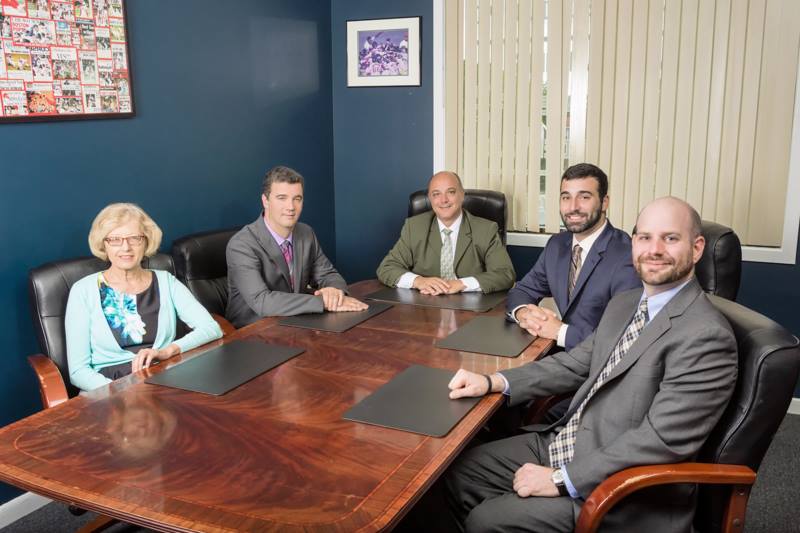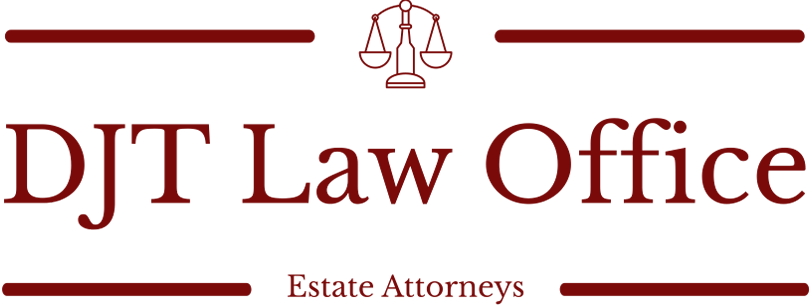Probate Lawyer in Lexington & Belmont MA
No Fee Initial Consultation
IF YOU NEED TO PROBATE A LOVED ONES ESTATE WE ARE HERE TO HELP
The loss of a loved one can be one of the most difficult situations you’ll ever face. If that person had no estate plan, or just had a simple Will, you are also facing probate. Unfortunately, dealing with the distribution of your loved one’s assets can add stress to an already emotional time. Do not go through that alone.
If a loved one passes away, you may be looking at a lengthy legal process known as probate or estate administration. This is a court-managed process through which the deceased’s assets are managed and distributed and is commonly necessary with or without a Last Will and Testament. A Will helps in this process to identify fiduciaries and beneficiaries but does not eliminate the process. Even if everything in the process goes smoothly. The Probate process usually takes a minimum of one year from the date of death for the estate to settle, provided no litigation is involved. Probate expenses include fees for the personal representative, the attorney, the accountant, court costs, appraisals, surety bonds, if applicable and extra-long carrying costs for real estate. This means you leave less money to your descendants, and it takes longer for your assets to get to them.
Get a free consultation!
Probate Page Form
We can help you navigate through the probate process, help reduce delays, and ensure that the estate is administered appropriately. Our office working with other professionals that we work with regularly, will work with you throughout the process to make it as easy for you as possible.
How the Probate Process Works
Every personal estate is unique, the probate process will differ slightly from one person to another. In general, however, the process in Massachusetts is as follows:
- A petition is filed with the proper probate court.
- A notice is issued to heirs named in the Will or to statutory heirs if no Will exists.
- A petition is filed for the court to appoint the executor named in the Will or an administrator for the estate if no Will exists.
- The executor or estate administrator conducts an inventory and appraisal of estate assets.
- Any debts held by the estate are paid to rightful creditors.
- Estate assets are sold, if necessary.
- Estate taxes, if applicable, are paid.
- Assets are distributed to heirs.
In most cases, the estate must be probated within three years of your loved one’s death. It is not uncommon for someone to object to the Will at some point during the probate process, which can mean lengthy and expensive litigation. If several versions of a Will exist or family members dispute their share of an inheritance, the probate process will become much more complicated. Any property that is held only in the deceased’s name without named beneficiaries will have to be probated, even if the assets are included in a valid Will.
You will also have to probate the deceased’s estate if you need to get Medical Records for a Medical Malpractice, Negligence or Wrongful Death case.
What Assets of an Estate Don’t Have to Go Through Probate?
A person’s GROSS ESTATE includes assets they had an interest in at the time of their death. Some assets of a gross estate are non-probate assets that are not subject to the terms of their will or the probate process. Non-probate assets pass more easily to beneficiaries. For example, assets held in trust will pass to the beneficiaries according to the terms of the trust, with no court intervention. A trust holds legal title to property for the benefit of another person (“beneficiary”). The person who creates the trust (“grantor”) or (“donor”) chooses a manager (“trustee”). Assets may also escape the probate process if they are:
- Jointly owned Property with rights of survivorship
- Retirement accounts, life insurance, annuities, pensions with named beneficiaries who survive you
- Bank and Brokerage accounts held in joint name or with transfer on death or payable on death clauses with surviving beneficiaries.
There are significant drawbacks to these different forms of ownership that you should review with your estate planning attorney and financial advisor.
We, as your Estate Planning Attorney, Trust Attorney or Probate Attorney assists the appointed executor, administrator, or personal representative in the handling of the decedent’s affairs. We can help you ensure that the applicable state and federal taxes are paid, debts are satisfied, and the remaining assets are distributed or managed according to the decedent’s wishes or under Massachusetts intestacy laws, if they died without a Will.
Duties of a Probate Lawyer
The tasks that a probate attorney performs are numerous and can be complex and time consuming. These include the following:
- Helping to locate the decedent’s probate and non-probate assets
- Obtaining appraisals and valuations of personal and real property
- Tracking the estate’s bank account
- Advising on payment of bills and other obligations
- Determining the applicable federal and state taxes and the sources of payment for these obligations
- Helping arrange the sale of real and personal property
- Handling other tax issues
- Resolving disputes between the executor or personal representative and estate beneficiaries
- Transferring title to real estate to named beneficiaries
- Knowing when permission from the court is necessary before certain transactions can be performed
- Overseeing the distribution of the estate’s remaining assets to the beneficiaries
A probate becomes much more complicated if a business or real estate is involved. There may also be instances where there are insufficient funds to pay all creditors or taxes. In these cases, consideration has to be given to which creditors have priority.
Will Contests
Few other events rip families apart than arguing over who is entitled to the funds left by the decedent or whether the family member named as personal representative or executor is mishandling funds. Many probate battles drain funds from the estate and that of the disputing parties. Consult with a probate attorney if a will contest is brewing or has already begun.
Possessing an in-depth understanding of the complexities and requirements involved in probate cases, The Law Office of Dale J. Tamburro delivers competent legal representation you expect, while giving you the respect and compassion you deserve.
How to Avoid Probate
Planning ahead is necessary. Maintaining your estate plan after you create a plan is essential as well. If you are procrastinating about establishing an estate plan you are not alone. But having no plan is just a bad plan and one that won’t succeed. Once your loved one is gone, there is no way to avoid probate. However, prior to death both revocable and irrevocable funded trusts can be used to avoid probate.
Allow Us to Help You at This Difficult Time - We are here to meet all of your elder care, estate planning, and probate needs.
Serving Belmont and MetroWest Massachusetts since 1992
Why choose DJT Law
We are a general practice office, emphasizing estate planning, probate, and all aspects of buying and selling residential real estate. We provide a unique combination of knowledge, experience and compassion where issues of elder and real estate law intersect. Our clients feel confident working with us because they know that we are committed to delivering truly personalized attention — just like law practices provided a century ago! We have been serving families in Belmont and MetroWest Boston since 1992. We look forward to serving you!








